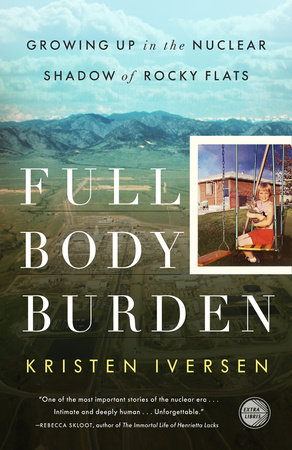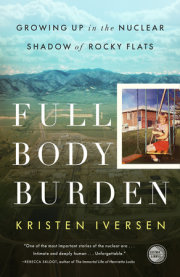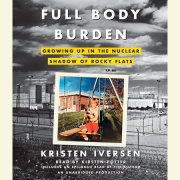1Mother’s Day1963
It’s 1963 and I’m five. I lie across the backseat of the family car, sleeping with my cheek pressed against the vinyl. My mother sits in the front with baby Karin and my father drives, carefully holding his cigarette just at the window’s edge. This is how I remember my mother and father: smoking in a cool, elegant way that makes me want to grow up quick so I can smoke, too. It’s evening and I’m tired and cranky. The spring day has been spent on a long drive through the Colorado mountains, a Sunday ritual.
We turn the corner to our home on Johnson Court, the square little house my parents bought when my father left his job as an attorney for an insurance company and set up his own law practice. The neighborhood is made up of winding rows of houses that all look like ours: a front door and a picture window facing the street, two windows on each side, and a sliding door in the back that opens to a postage-stamp backyard. We have a view of the mountains and one tree.
“Uh-oh,” my mother says.
“Jesus.” My dad stops the car. I scramble to my knees to look.
Our house is smoldering. One side is gone. A fire truck and a police car with streaking red lights stand in the driveway.
My dad jumps out and my mom reaches over and pulls up the parking brake. “Dick,” she says, “I’m taking Kris to the neighbor’s.” My mother is always good in a crisis.
Mrs. Hauschild is waiting at her door. She takes a pair of pajamas from her daughter’s room—we’re almost the same age—and she beds me down in the basement in a sleeping bag. “She’ll be fine here,” Mrs. Hauschild says. “She doesn’t need to see all that commotion.” She suggests they both have a drink and a cigarette. My mother nods.
“Someone must have left the lamp on in Kris’s bedroom,” my mother says as they walk up the stairs. “The drapes caught on fire.”
I repeat these words in my head until I come to believe I set the fire myself. I can still picture my bedside lamp, the brass switch, the round orange globe always warm to the touch.
Years later—decades, in fact—my father laughs when I tell him this story. “You didn’t cause that fire, Kris,” he says. “Your mother and I did. We had been sitting and talking in the living room, having a drink together, and we left a burning cigarette in the ashtray. Neither of us noticed. The drapes in the living room caught fire first.” The flames never reached my room.
This is how I want to remember my parents: still talking to each other, even when the world was tumbling down around their ears.
•
We rent a basement apartment for a month and then move back to our rebuilt house. Nothing is ever said about the fire. Nothing is ever said about dark or sad or upsetting events, and anything that involves liquor is definitely not discussed. My parents are elegant drinkers. My mother can make a Manhattan with just the right splash of whiskey and vermouth. My father takes his bourbon straight on ice. After dinner, once my mother has tucked us into bed, my parents make cocktails and play cribbage to determine who has to do the dishes. From my bedroom I can hear my mother’s soft laugh. Sometimes there’s a stack of unwashed plates in the sink when we leave for school in the morning.
Soon another baby is born: my sister Karma. This is not a hippie name, despite the fact that we live close to Boulder. My mother insists on naming her daughters after her Norwegian heritage: Kristen, Karin, Karma.
At the top of the hill behind our house stands the Arvada cemetery. The year 1863 is etched in a stone marker at the entrance. The cemetery works like a magnet. As soon as our mother puts us out into the yard for the afternoon—just like the kids and grandkids on the family farm back in Iowa, who were expected to fend for themselves for the day—Karin and I scramble over the fence and head for the hill. We are our own secret club, and Karma joins us as soon as she is old enough to toddle along. Sometimes the other neighbor girls—Paula, Susie, and Kathy—are allowed into the club as temporary members. We trek across the field behind the row of backyards and through the old apple orchard and get up to the creek, where we balance a flat plank across the shallow, sluggish water and tiptoe across. Water spiders dance across the surface and tiny minnows scatter when we push our toes into the muddy bottom.
At the crest of the hill stand row after row of headstones. Some are tall, others flat against the ground. Some have the names of children or images of their faces etched in the stone, and we stay away from those. We run up and down the rows, shrieking and gathering up the plastic flowers. We pile all our flowers in the middle and sit in a circle around them. We look down the hill to our house and imagine our mother, big and round, lying on her bed and waiting for the next baby, a boy at last, she’s sure of it. A little farther, we can see the Arvada Villa Pizza Parlor and the Arvada Beauty Academy. Between our neighborhood and the long dark line of mountains stands a single white water tower, all by itself. The Rocky Flats water tower. There is a hidden factory there.
That hidden factory is the Rocky Flats Nuclear Weapons Plant, a foundry that smelts plutonium, purifies it, and shapes it into plutonium “triggers” for nuclear bombs. The plant also recycles fissionable material from outmoded bombs. A largely blue-collar link in the U.S. government’s nuclear bomb network, Rocky Flats is the only plant in the country that produces these triggers--small, spherical explosives that provide an atomic bomb’s chain reaction. The triggers form the heart of every nuclear weapon made in America. From 1952 to 1989, Rocky Flats manufactures more than seventy thousand plutonium triggers, at a cost of nearly $4 million apiece. Each one contains enough breathable particles of plutonium to kill every person on earth.
Rocky Flats’ largest output, however, is radioactive and toxic waste. In all the decades of nuclear weapons production, the nuclear weapons industry produces waste with too little thought to the future or the environment. The creation of each gram of plutonium produces radioactive waste, virtually all of which remains with us to the present day.
But no one in our community knows what goes on at Rocky Flats. This is a secret operation, not subject to any laws of the state.
The wind blows, as it always does. I imagine the bones of pioneers and cowboys beneath our feet. The chill of evening begins to creep up the hill; the air turns cold when the sun dips.
“Let’s go!” Karin yells, and we jump to our feet and roll and tumble down the hill. We bounce across the plank and race across the field, full speed, before the sun sets and the ghosts come out.
Copyright © 2012 by Kristen Iversen. All rights reserved. No part of this excerpt may be reproduced or reprinted without permission in writing from the publisher.










